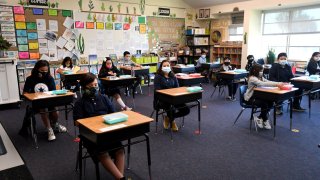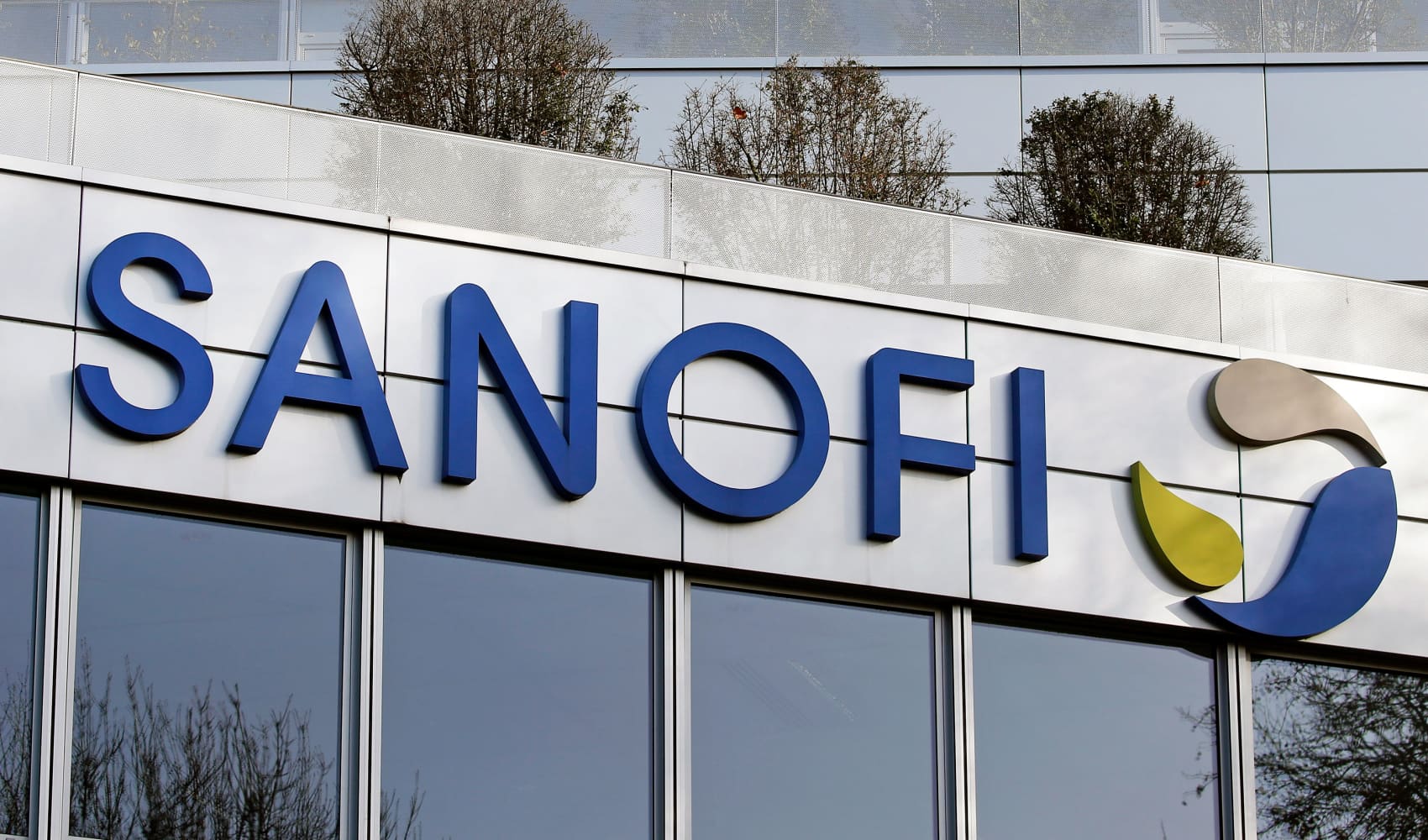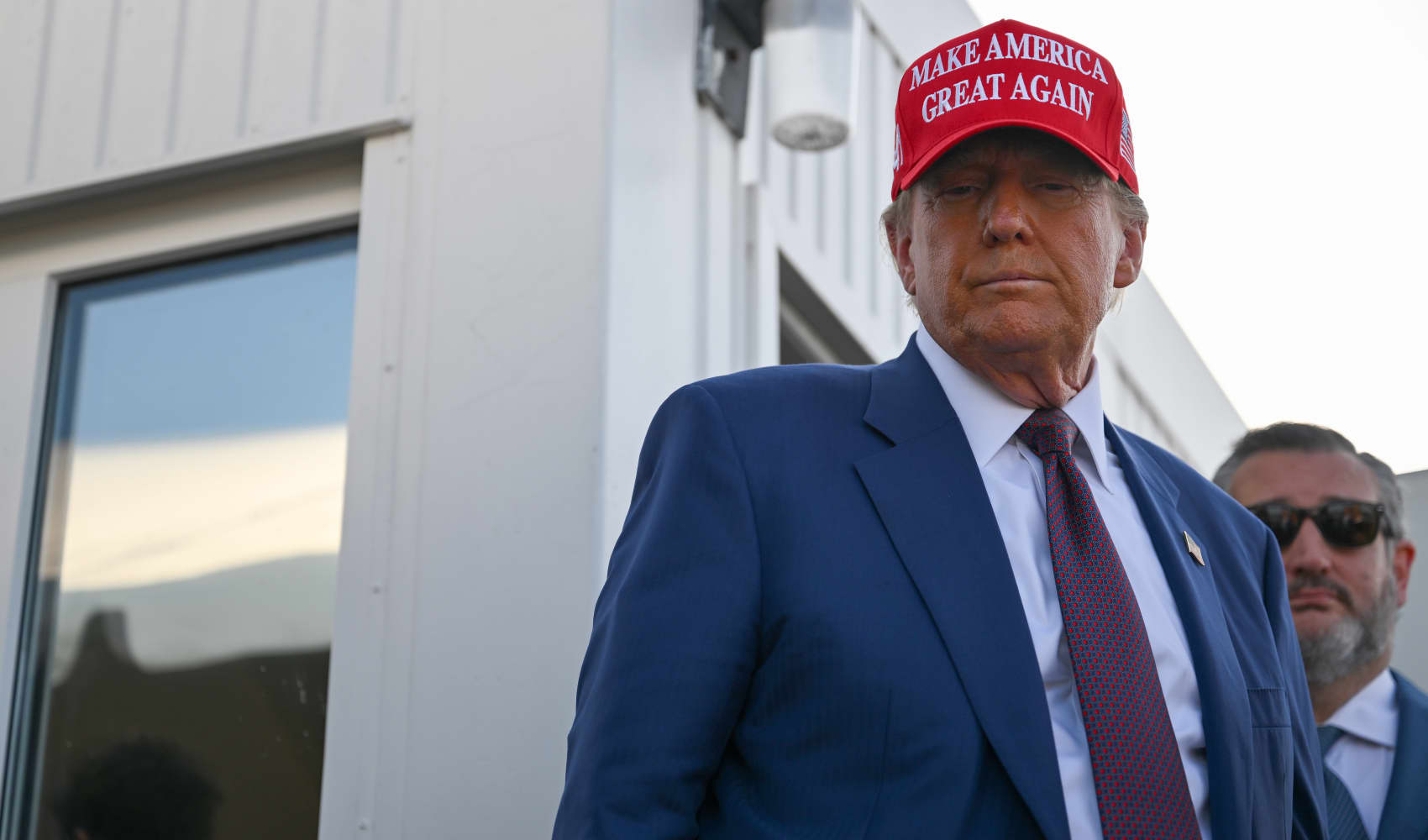
- Just as back-to-school plans get underway, a rise in coronavirus cases due to the delta variant threatens in-person learning.
- At the same time, the country remains divided on masking and vaccination requirements, particularly for schoolchildren.
With schools and parents divided on mask and vaccine requirements, many school districts are planning to be fully in person in the fall — and hoping for the best.
"We are all in this together," said Michael Lubelfeld, superintendent of North Shore School District, just north of Chicago.
Lubelfeld said he will follow Illinois Gov. JB Pritzker's recently announced statewide school mask mandate and "strongly encourage" vaccinations for students who are eligible.
Illinois experienced a 46% increase in cases last week, a seven-day average of almost 1,669 new coronavirus cases, according to data from Johns Hopkins University.
More from Personal Finance
Colleges and unvaccinated students are set for a standoff this fall
College plans rebound although cost is a top concern
Hundreds of colleges say Covid vaccines will be mandatory
Money Report
The U.S. finally hit the 70% nationwide goal for adults with at least one shot of a Covid vaccine, according to CDC data.
Yet, among schoolchildren over 12, the rate is much lower. In fact, teenagers have the lowest rate of any age group, which puts in-person learning at risk just weeks before the start of a new academic year.

School closures have a clear negative impact on children's health, the United Nations health agency has warned, citing setbacks to children's education and development, family income and the overall economy.
"It is recommended by everyone that kids go to school in person; however, we have to see which direction the pandemic goes," said Tina Tan, professor of pediatrics at Northwestern University, Feinberg School of Medicine.
"If we continue to see an increase of Covid, it may be that some schools go back to hybrid or virtual."
Already, case counts are higher due to the delta variant as back-to-school plans get underway. Still, children are less likely to develop symptoms when infected with Covid and if symptoms do develop, they tend to be a very mild form of the disease.
"The hope is that the students will get back to the classroom, but I had been more hopeful a couple of months ago," said Preeti Malani, a professor of medicine in the division of infectious diseases at the University of Michigan.
"Returning to the classroom is not zero risk but that risk can be mitigated," Malani said.
"I believe that we will be able to remain in person but we all have to be prepared that outbreaks will be inevitable," said Susan Enfield, superintendent of Highline Public Schools, a district of nearly 18,000 students near Seattle. "We just have to have really clear health and safety protocols."
Masking, social distancing, hand hygiene and better ventilation can all contribute to making schools safer for students and teachers, experts say, yet many institutions have struggled to maintain these standards with limited space and budgets.
Adding to the difficulty, decisions on masking and vaccination requirements are split along political lines. Elected officials in some states have made masks mandatory for students in schools, while others said such rules are illegal.
"We've had mandates for vaccinations in schools for over 100 years," said Bob Bollinger, a professor of infectious diseases at the Johns Hopkins University School of Medicine and inventor of the emocha Health app.
"Vaccine mandates are nothing new," he added. "What's new is this is a new virus and there's some insufficient long-term data to convince some people."
In fact, for students enrolled in school, there are many vaccination requirements in place to prevent the spread of diseases such as polio, diphtheria, tetanus and whooping cough.
All 50 states have at least some vaccine mandates for children attending public schools and even those attending private schools and day-care centers. In every case, there are medical exemptions, and in some cases, there are religious or philosophical exemptions, as well.
Once it is fully approved, some states may add Covid-19 to their list of required vaccinations to attend school. In most cases, those vaccination laws would apply to both public and private schools and be subject to the same exemptions, depending on the state.
Although private schools have the right to require vaccinations for students, the majority said they would "encourage, but not require" Covid vaccines, according to a recent report by the National Association of Independent Schools.
Already, hundreds of colleges and universities — both public and private — announced that Covid shots would be added to the list of required immunizations for students returning to campus in the fall of 2021.
Going forward, a lot will depend on what happens across the country, Bollinger said. "If we want to keep our businesses and schools open, the best way to do that is get vaccinated."
Reports of "significant" academic learning loss in school districts nationwide underscore concerns about the toll virtual learning has had on education at every level.
"Distance learning is not working," said Dimitri Christakis, director of the Center for Child Health, Behavior and Development at the Seattle Children's Research Institute.
"Not only do children need to go back to school but we need to rectify the damage we've done."






